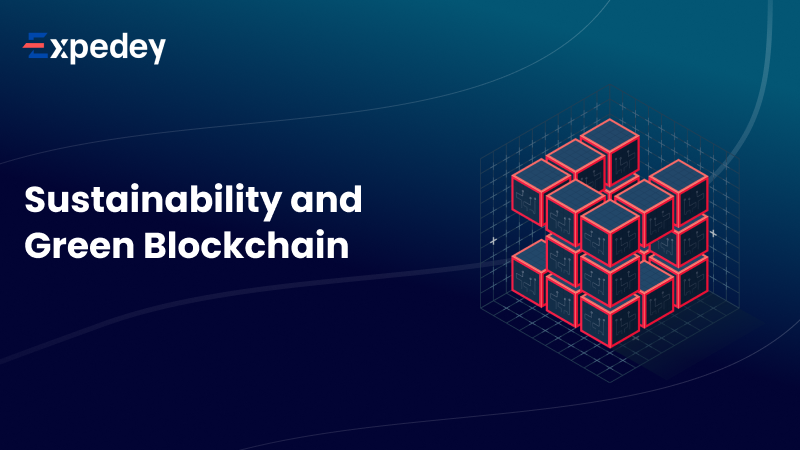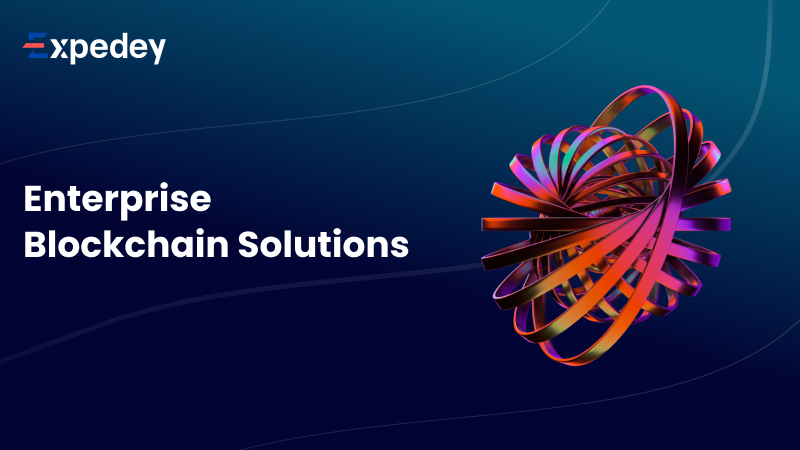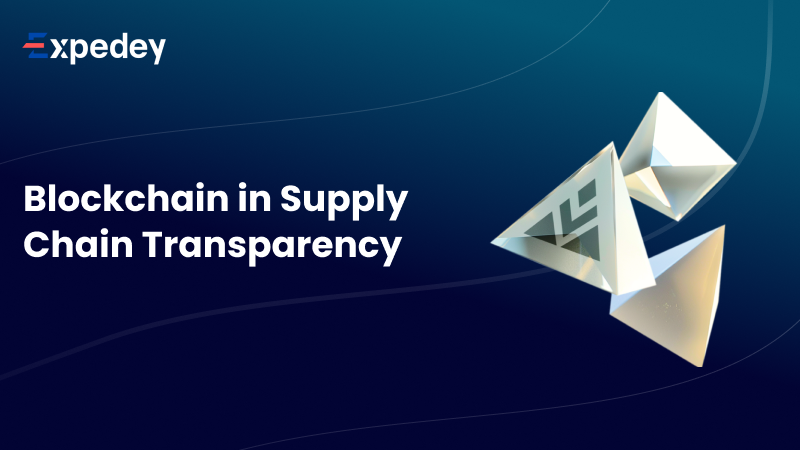
Blockchain technology has dominated the digital space for years with constant improvements and changes in numerous sectors, including supply chain management and finance. With more than 300 million people who use blockchain technology in one way or another, the impact is indeed phenomenal. From now until 2025, there is a lot the blockchain industry has to break through. Here, in this blog, we will discuss the top Blockchain Technology Trends to watch out for those that shape the Future of Blockchain and change the scenario of business as well as governmental operations.
Interoperability and Cross-Chain Solutions
Cross-chain solutions and interoperability will be among the top blockchain technology developments to keep an eye on in 2025. Most blockchain networks are currently siloed, meaning they're capable of so much more than what they do at this point. In 2025, there will be an even bigger drive for continuous interaction between distinct blockchain platforms. Networks would then be able to communicate with other networks to share data.
Projects such as Cosmos and Polkadot are leaders in this type of movement, creating decentralized ecosystems for multiple blockchains to communicate with each other. The ability to move assets and information across various platforms will make Blockchain more versatile and accessible, leading to increased collaboration and innovation within the industry.
Imagine a world where data is no longer confined to a blockchain but can move easily and securely across multiple networks. In the Future of Blockchain, businesses and developers will be empowered to develop more integrated systems and offer better services in multiple industries.

Decentralized Finance 2.0
The financial world has already experienced a change with Decentralized Finance. However, things are said to be at a different height by 2025 if the next wave of DeFi, DeFi 2.0, enters mainstream scenarios. This will focus on improving already existing decentralized financial systems and is said to make them safer, user-friendly, and scalable.
We will see DeFi extended into more complex financial products, such as insurance, derivatives, and physical tokenized assets. Direct and minimal intermediary functions would be a characteristic of these platforms; as a result, costs would be reduced, and access to service users from any part of the world would be opened. DeFi 2.0 will democratize access to financial services by making it possible for anyone, regardless of their financial standing or place on Earth, to join the global economy. This marks a new move in Blockchain Technology Trends in the direction of more pervasive involvement and effectiveness.
AI with Blockchain Integration
The most exciting trend in Blockchain Technology is the integration of AI with Blockchain. It will be expected that by 2025, the two powerful technologies will work together to change healthcare finance.
Blockchain will hence provide an environment that is tamper-proof and transparent to the AI algorithms using data in order to avoid any form of bias. On the other side, developments proposed by AI can make the blockchain network more intelligent and adaptive in its nature. For example, AI-driven smart contracts will be able to make decisions based on more complex data inputs, enabling more sophisticated decentralized applications.
In industries where data integrity and accuracy are paramount, such as supply chain management and healthcare, the convergence of AI and Blockchain will lead to more reliable and efficient systems.

Sustainability and Green Blockchain
Blockchain is growing exponentially, and so are concerns about its environmental impact. Traditional blockchain consensus mechanisms like Proof of Work (PoW) are notoriously energy-intensive, leading to calls for more sustainable alternatives.
By 2025, we expect to see a significant shift towards green blockchain solutions that prioritize sustainability. This will involve the adoption of more energy-efficient consensus-building techniques like Proof of Stake (PoS), as well as the development of eco-friendly protocols designed to reduce carbon footprints.
That push toward sustainability will come out in new blockchain models that balance those elements; that is to say, when one moves from environmental responsibility to technological growth, enabling Blockchain to continue growing without harming the planet.

Enterprise Blockchain Solutions
Those days when 'Blockchain is only for cryptocurrencies' are gone. By 2025, Enterprise Blockchain Solutions will become a key driving force behind the adoption of blockchain technology within manufacturing, supply chain management, healthcare, and many others.
Several BaaS platforms will arrive that leverage the advantages of the widespread adoption of leading-edge technologies, like IBM and Microsoft companies, to assist businesses in implementing blockchain technology without necessarily requiring high-level technical know-how. This will allow the industry at large to handle operations more streamlined, more transparent, and more secure.
From tracking the origin of products in the supply chain to authenticating goods, enterprise blockchain solutions will change the very modus operandi for businesses and arm them with the tools to succeed in a decentralized world.
Privacy-Enhancing Technologies
With data privacy becoming a very pressing concern, Privacy-Enhancing Technologies are to play a pivotal role in the Future of Blockchain. By 2025, we will see much more comprehensive blockchain solutions with an emphasis on the privacy of information so that users have control over their private information at the minimum.
Zero-knowledge proofs and confidential transactions will be the technologies that allow zeroing down the verification of data in a secure manner that does not violate any level of privacy. This would be extremely paramount in finance and healthcare industries, where privacy is the top priority.
Expect to see a class of blockchain platforms perfectly balance transparency with privacy, allowing easy, secure transactions without any compromise in personal data.
Government Adoption and Regulatory Clarity
It would take some time to see blockchain technology become mainstream, but the winds of change are blowing. Soon enough, more governments by 2025 will use Blockchain to identify people, vote, and manage public records. This, in turn, will clarify much of the regulation matters that support innovation.
Countries like China and Estonia are already experimenting with Blockchain for governance purposes, and more nations will likely follow suit. Government-backed blockchain solutions will not only increase trust in the technology but also accelerate its widespread adoption.

Blockchain in Supply Chain Transparency
Because supply networks are frequently opaque and complex, it is possible for fraud and inefficiencies to happen. Blockchain Technology Trends have been pointing to a future where Blockchain will be the linchpin for making supply chains more transparent.
Companies will use Blockchain to follow the product from the production channel all the way to the end customer to validate authenticity and prevent potential fraud by 2025. In most instances, this will benefit sectors such as pharmaceuticals, agriculture, and high-end products whose source and integrity must be validated.
Blockchain allows customers to feel more confident in the goods they buy, knowing they were sourced ethically and produced transparently.
DAOs, Decentralized Autonomous Organizations
Decentralized Autonomous Organizations (DAOs) represent a new model of governance where decision-making is decentralized and controlled by smart contracts. DAOs are the next frontier where communities and organizations can function under no central authority.
DAOs will become the new standard, be it in finance or community-driven projects, by 2025. These organizations will enable more democratic and transparent governance, so stakeholders have a say in the direction of the project.
As DAOs grow in popularity, they will introduce a new era of decentralized decision-making, empowering individuals to take control of the organizations they support.

Blockchain-as-a-Service (BaaS)
Blockchain-as-a-Service (BaaS) will continue to gain traction as more businesses look to implement Blockchain without the technical complexity. By 2025, BaaS platforms will be widely used by enterprises across various industries, from finance to logistics.
BaaS providers will handle the backend infrastructure, allowing companies to focus on their core operations. This will make Blockchain accessible to businesses of any size, accelerate its adoption, and incorporate it into daily procedures.
Final Words
Indeed, the future of Blockchain is bright; it has much promise for limitless innovation and growth to be seen in 2025 as Blockchain Technology Trends keep on changing the world- from decentralizing finance and integrating AI into its core products towards sustainability and its adoption by enterprises-only shows that such trends In Blockchain Technology are here to stay.
The possibilities are limitless, as does the potential promise of Blockchain for the Future. Excitement abounds for industries, governments, and individuals alike with endless possibilities. For more information on how we can help you navigate these trends, visit our Blockchain Services page. Don’t miss out on the opportunity to transform your business! Contact us today to discuss how our expert team can assist you in leveraging blockchain technology for your needs.
Recent Blogs
What is Meant by Trustless Transactions in Blockchain?
Discover how trustless transactions in blockchain eliminate the need for intermediaries, ensuring transparency, security, and automation through smart contracts. Explore the future of decentralized, trust-free transactions
How To Build A Responsive Website
Discover the importance of responsive web design and how to create a mobile-friendly website that adapts to any screen size. Learn essential tips to enhance user experience and boost your site's performance.
Benefits Of Using WordPress For Your Ecommerce Website
Discover the benefits of using WordPress for your ecommerce website. Learn how WordPress and WooCommerce offer flexibility, customization, and scalability to grow your online store effortlessly.
Quick Links
Our Offices

USA
12828 Willow Centre Dr Ste D #978 Houston, TX 77066
PAKISTAN
Suite # 207, 2nd Floor, Park Avenue Building, Block 6, P.E.C.H.S, Shahrah-e-Faisal, Karachi.Contact Us
© 2024 Expedey. All Rights Reserved.

